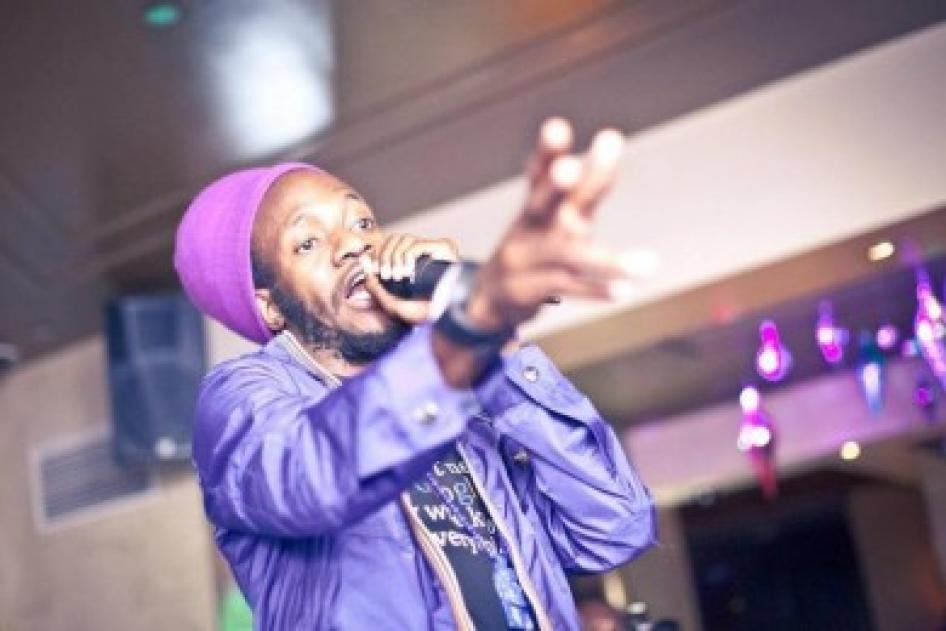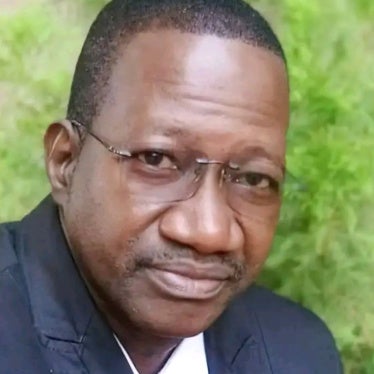(Johannesburg) – Zimbabwe police on March 4, 2023 stormed the stage and shut down the show of a popular musician known for his critical commentary, Human Rights Watch said today. Wallace Chirumiko, 40, known as “Winky D,” is a celebrated reggae-dancehall artist who recently released an album that contains lyrics against social and political injustice, corruption, and the economic meltdown in Zimbabwe.
Zimbabwe authorities should promptly investigate and take appropriate action against officials responsible for this and other acts of intimidation, harassment, and threats against artists peacefully expressing their views. Particularly ahead of general elections expected in July or August, the authorities need to fully respect and protect the rights to freedom of speech, expression, and assembly.
“Shutting down Winky D’s show sends a message that Zimbabwe’s authorities are willing to harass even the most popular performers for what they say,” said Idriss Ali Nassah, senior Africa researcher at Human Rights Watch. “The Zimbabwe government needs to quickly take strong action to demonstrate that free expression will be respected, or there will be genuine concerns that upcoming elections can’t be credible, free, and fair.”
Following the release of Winky D’s album in January, the Economic Empowerment Group, a lobbying group affiliated with the ruling Zanu-PF party of President Emmerson Mnangagwa, held a news conference saying that Winky D should be banned from performing at any public event or public venue in Zimbabwe and that all local radio stations should be forbidden to play his music.
The group accused the musician of instigating dissent among the country’s youth as part of a “regime change agenda.”
Members of Zimbabwe’s arts community expressed concern that the government’s actions against Winky D are part of a broader threat to basic rights and liberties ahead of the general election.
Professor Fred Zindi, an academic, author, and musician, told Newzimbabwe.com:
Winky D’s song ‘ibotso,’ which talks about corruption, mismanagement and the abuse of national resources by an elite few, rattled the authorities and has made Winky D a marked man. With elections looming, any politically conscious popular musician who sings about what is deemed to be anti-government sentiments becomes an enemy and the government will try to intimidate and suppress the thinking of that artist.
Theater and film producer Daves Guzha told Human Rights Watch: "the action by the police against Winky D was a clear abuse of power. The National Arts Council of Zimbabwe should stand with artists and take a position to push back against such abuse of power by the state and its agents.” He said: “we can’t have a situation where artists can’t freely express themselves because they fear to be harassed, arrested, or have their rights violated. It is not a crime being an artist.
During the same weekend, another popular musician known as Baba Harare, who has over 400,000 Facebook followers and been using his platforms to encourage young people to register to vote, posted that the police had refused to grant him permission to hold a show. He said no reasons were given.
On March 5, Baba Harare wrote on Facebook: “It is with great disappointment that I have to inform you that my scheduled show in Chitungwiza has been cancelled. Police did not give us clearance to perform.”
“The harassment of musicians highlights the Zimbabwe government’s growing intolerance of voices deemed critical to the Mnangagwa administration in the run-up to mid-year elections,” Nassah said. “The authorities should stop harassing artists and allow them to express their views and practice their art without fear. The authorities should swiftly act to ensure that police are impartial and are not used to violate freedoms of association and expression protected by international law.”








